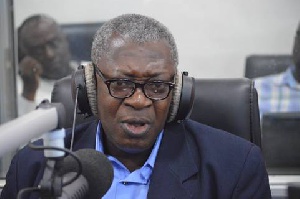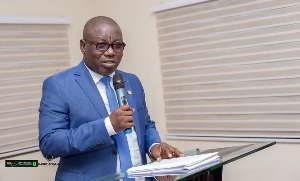A former Director of the Ghana Health Service (GHS), Prof Agyeman Badu Akosa, has stated that indiscipline is rife within the top management of most state-owned institutions because of the nature of appointment to such bodies.
According to him, indiscipline in public institutions is commonplace because persons appointed to top positions in such bodies do not get there by merit but by political patronage.
The retired pathologist and former CPP flagbearer aspirant made the comments Thursday February 25, 2016 on Class91.3FM’s Boardroom programme hosted by Captain Budu Koomson (rtd).
Contributing to the topic: ‘Executive Indiscipline in Ghana’, Prof Akosa said: “I don’t believe that anybody, who has been appointed through due process can come and exhibit executive indiscipline. You don’t have a godfather, you are not appointed because somebody announced your appointment.
“But where appointments are announced and probably the Public Service Commission then forms a group to ratify that appointment, then, of course, the person thinks that… while he is supposed to be working, he is supposed to probably be at the State of the Nation Address because he’s got to be seen by his godfather. Meanwhile, you expect him to, as the Nigerians say, ‘be on seat’.”
“I think for me, I will put it squarely on patronage and the appointing process of the board, chief executive, directors, and all that…so long as it is by patronage, people will take advantage of the system,” Prof Akosa added.
He said that situation of appointment of persons without merit to lead such bodies often led to “conflicts of interest,” which, in his view, constituted the “greatest indiscipline” at the executive level.
According to him, such appointments to the leadership of state-owned bodies create situations where such persons only serve their personal and other interests instead of the institutions’. “People are not there for the organisation’s sake, but for somebody else,” Prof Akosa asserted.
General News of Friday, 26 February 2016
Source: classfmonline













